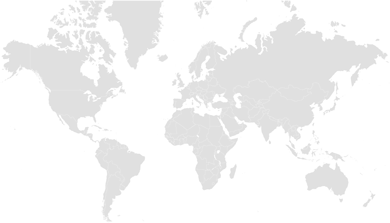Case study
2022 • Enterra Feed Corporation Enterra Feed Corporation – Sustainable insect-based feed production
Enterra Feed Corporation pioneered industrial-scale Black Soldier Fly (BSF) technology to convert preconsumer organic waste into sustainable products such as larvae meal, oil, and biofertilizers. The company operated facilities in Canada and aimed to address organic waste management challenges while providing eco-friendly agricultural inputs. Despite its innovative approach and significant contributions to waste diversion and sustainable feed production, Enterra Feed entered receivership in November 2022 due to financial challenges, halting its independent operations.
Recovered Materials & Products
Nutrients
Fertilizer
Black soldier fly larvae
Waste Streams
Organic solid waste
Confirmed countries
Denmark


Background and Context
Location: Vancouver, Canada
Resource Stream: Preconsumer food waste, including fruits, vegetables, grains, and fish trimmings.
Challenges: Canada faces significant food waste challenges, with over 50% of its food supply wasted annually. Organic waste contributes to landfill dependency and greenhouse gas emissions. Enterra Feed emerged as a solution to divert organic waste while producing sustainable agricultural and aquaculture inputs.
Technologies/Methods Used
- BSF-Based Waste Treatment: Organic waste was converted into high-value products through BSF larvae feeding.
- Preprocessing: Depackaging, shredding, and blending organic waste created an optimized substrate for larvae consumption.
- Controlled Rearing: Vertical farming techniques were employed to rear larvae under automated and controlled conditions.
- Postprocessing: Harvested larvae were sanitized, cooked, dried, and converted into protein meal, oil, and biofertilizers.
Implementation Steps
Facility Development: Enterra developed a state-of-the-art production facility in Rocky View County, Alberta, capable of processing 130 tonnes of organic waste daily.
Regulatory Approvals: Achieved Canadian Food Inspection Agency (CFIA) and U.S. FDA approvals for insect-based feed products for poultry and aquaculture.
Market Expansion: Products were distributed across North America, with plans for international expansion into the European Union.
Outcomes and Impacts
Environmental Benefits: Diverted 36,000 tonnes of organic waste annually from landfills. Reduced methane emissions and supported sustainable waste management.
Economic Contributions: Provided sustainable feed and fertilizer solutions, addressing market demand for eco-friendly products.
Production Metrics: Daily production included 10 tonnes of high-protein feed ingredients and significant volumes of organic fertilizers.
Current Status
In November 2022, Enterra Feed Corporation entered receivership, with FTI Consulting Canada Inc. appointed as receiver. The receivership process involves managing and potentially liquidating the company’s assets to address financial obligations. This development marks a halt in Enterra’s independent operations, though its legacy highlights the potential of BSF technology in advancing circular economy principles.
Lessons Learned
Enterra Feed’s journey underscores the importance of financial resilience and market scalability in sustaining innovative waste-to-resource technologies. While regulatory support and market demand facilitated its initial success, operational challenges and financial pressures ultimately led to its receivership. Its contributions, however, paved the way for broader adoption of BSF technology in waste management and sustainable feed production.
Learn more
This case study is extracted from the publication linked below: "Global Experiences on Waste Processing with Black Soldier Fly (Hermetia illucens): From Technology to Business, Joly, G., Nikiema, J. (2019)"
https://www.susana.org/knowledge-hub/resources?id=3733
Technologies
Themes
Capacity building
Technologies